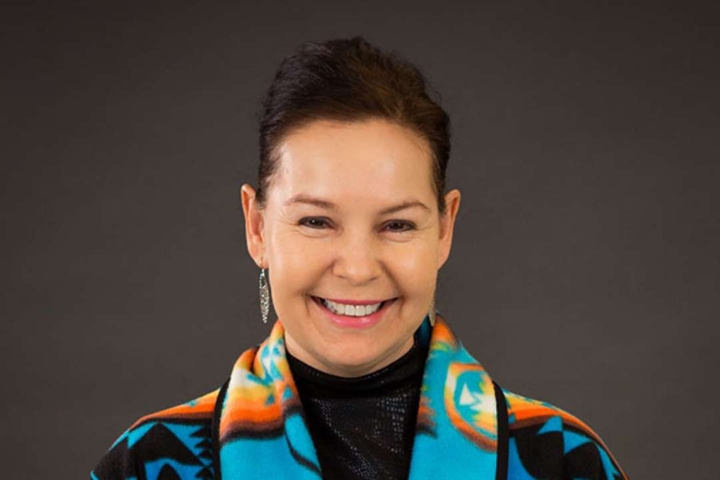
New $1.05M Research Chair Aims to Improve Indigenous Health
Researcher Holly Graham has been awarded an Indigenous Research Chair in Nursing by the Canadian Institutes of Health Research.
By USask Research Profile and ImpactUniversity of Saskatchewan researcher Holly Graham has been awarded an Indigenous Research Chair in Nursing by the Canadian Institutes of Health Research (CIHR) to build research capacity in Indigenous nursing and improve the health of Indigenous peoples.
The new research chair—the first at the USask College of Nursing—will support and mentor Indigenous and non-Indigenous undergraduate and graduate student nurses to conduct research that will advance reconciliation in nursing practice, research, education, and administration.
“This exciting new research program with its holistic approach will prepare a new generation of Indigenous youth to help reduce the health disparity between Indigenous and non-Indigenous people,” said USask Vice-President Research Karen Chad.
“Under Dr. Graham’s highly regarded leadership, this program provides an opportunity to strengthen reconciliation in nursing education so that Indigenous people are better served within the health care system.”
Funding for the new USask chair will total almost $1.05 million, with contributions of $666,500 from CIHR, $308,500 from the Saskatchewan Health Research Foundation, $10,000 from the Canadian Nurses Foundation, and $60,000 from USask.
Graham, an assistant professor in the USask College of Nursing and a member of the Thunderchild First Nation, aims to increase student recruitment and retention of trained Indigenous nurses. Scholarships will be provided to 11 graduate and undergraduate students, with a focus on building relationships with community partners.
With the guidance of an Indigenous Advisory Committee, the program will bring together both Indigenous and Western research paradigms, incorporating First Nation and Métis ways of knowing into the curriculum, said Graham.
“Our goal is for all graduates from our program to have an understanding both of the traditional Western perspective of health and wellness, and of Indigenous worldviews,” said Graham. “Having this understanding will enhance all aspects of nursing practice.”
Graham, who has extensive experience as a registered nurse and as a registered doctoral psychologist, aims to harmonize Indigenous cultural approaches to nursing care with evidence-informed health practices.
Entitled “wahkohtowin (we are all related)”, the program will create the opportunity for personal, community, and collective wellness for Indigenous and non-Indigenous peoples, with the ultimate goal of transforming relationships.
“The Medicine Wheel provides the framework for the holistic approach that considers the physical, emotional, mental and spiritual aspects of the individual,” Graham said. “The Seven Sacred Teachings will provide the foundation for human conduct towards others by instilling the values and virtues of humility, honesty, respect, courage, wisdom, truth, and love.”
USask’s College of Nursing has a long history of Indigenous student success, and is recognized as having both the highest number and proportion of self-declared Indigenous nursing students in the country.

